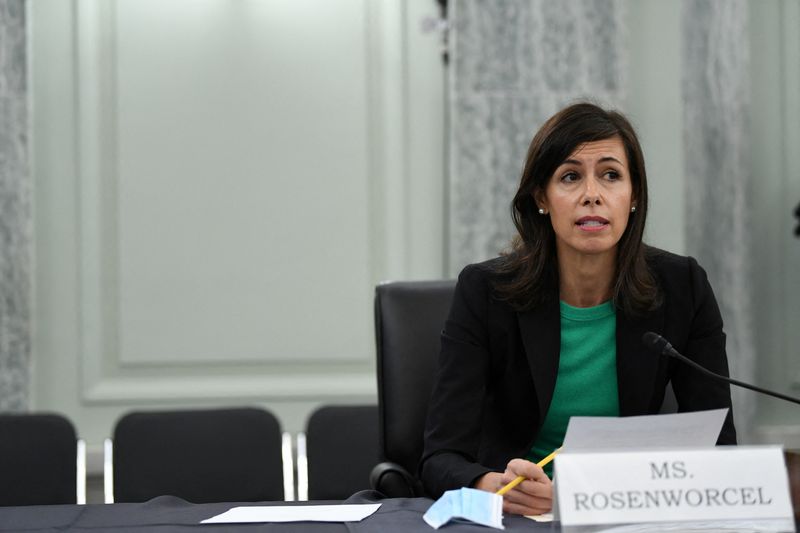By David Shepardson
WASHINGTON (Reuters) -U.S. Federal Communications Commission Chairwoman Jessica Rosenworcel on Wednesday proposed requiring disclosure of content generated by artificial intelligence (AI) in political ads on radio and TV.
Rosenworcel is asking her colleagues to vote to advance a proposed rule that would require disclosure of AI content in both candidate and issue advertisements, but does not propose to prohibit any AI-generated content within political ads.
The rule would require on-air and written disclosures and cover cable operators, satellite TV and radio providers, but the FCC does not have authority to regulate internet or social media ads or streaming services. The agency has already taken steps to combat misleading use of AI in political robocalls.
There is growing concern in Washington that AI-generated content could mislead voters in the November presidential and congressional elections. Some senators want to pass legislation before November that would address AI threats to election integrity.
"As artificial intelligence tools become more accessible, the commission wants to make sure consumers are fully informed when the technology is used," Rosenworcel said in a statement, adding the proposal "makes clear consumers have a right to know when AI tools are being used in the political ads they see."
The FCC said the use of AI is expected to play a substantial role in 2024 political ads. She singled out the potential for misleading "deep fakes" which are "altered images, videos, or audio recordings that depict people doing or saying things that did not actually do or say, or events that did not actually occur."
Advocacy group Public Knowledge called on Congress to extend oversight of AI in political advertising to digital platforms. Requiring disclosure of AI "protects a vital public interest and is a commonsense step for preventing deceptive political advertisements," the group's policy counsel Nicholas Garcia said.
AI content in elections drew new attention in January after a fake robocall imitating President Joe Biden sought to dissuade people from voting for him in New Hampshire's Democratic primary election.

In February, the FCC said robocalls using AI-generated voices are illegal. The declaratory ruling gave state attorneys general new tools to go after the entities behind the robocalls, Rosenworcel said.
The FCC in 2023 finalized a $5.1 million fine levied on conservative activists for making more than 1,100 illegal robocalls ahead of the 2020 U.S. election.